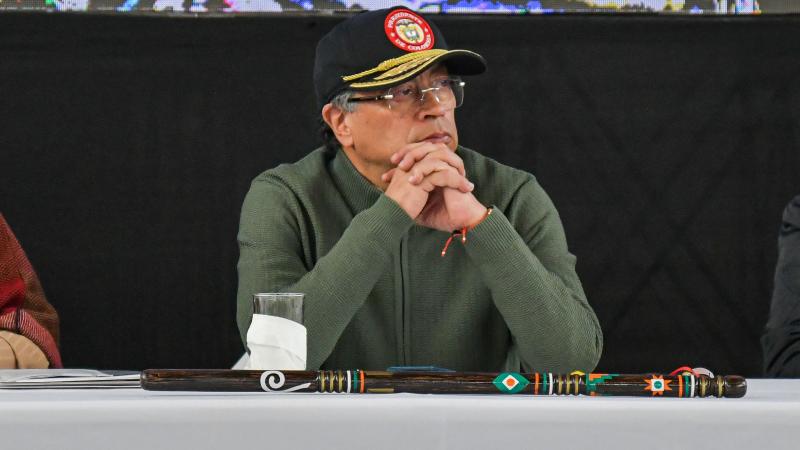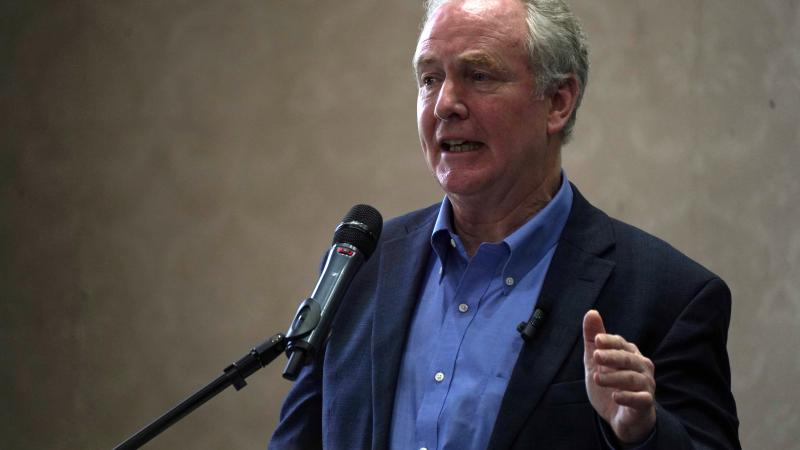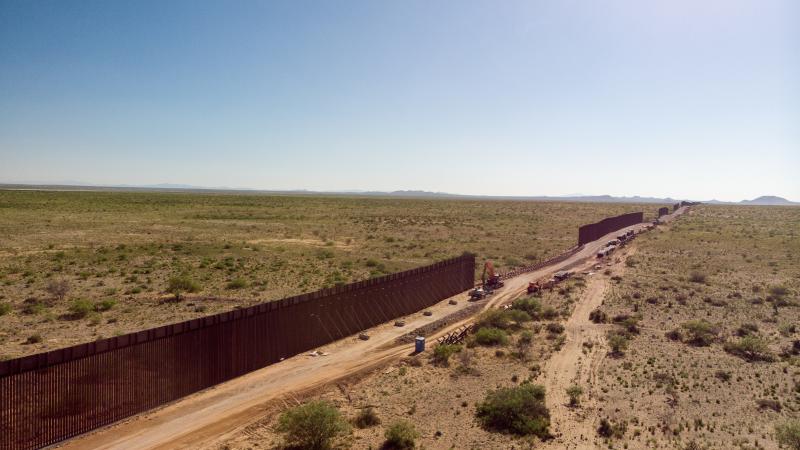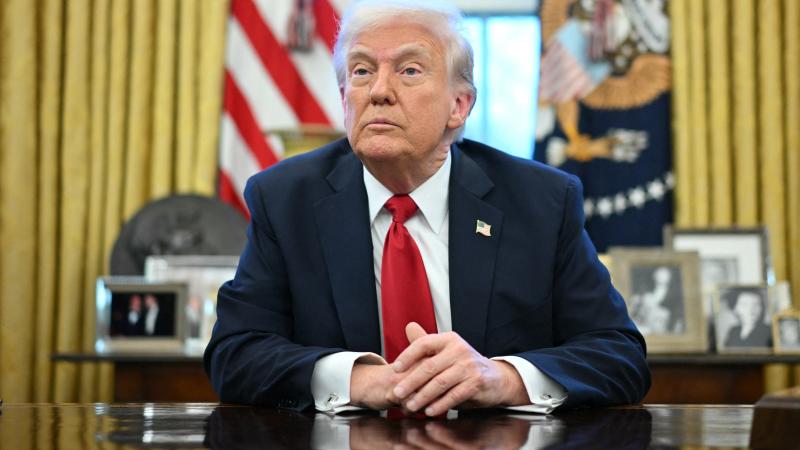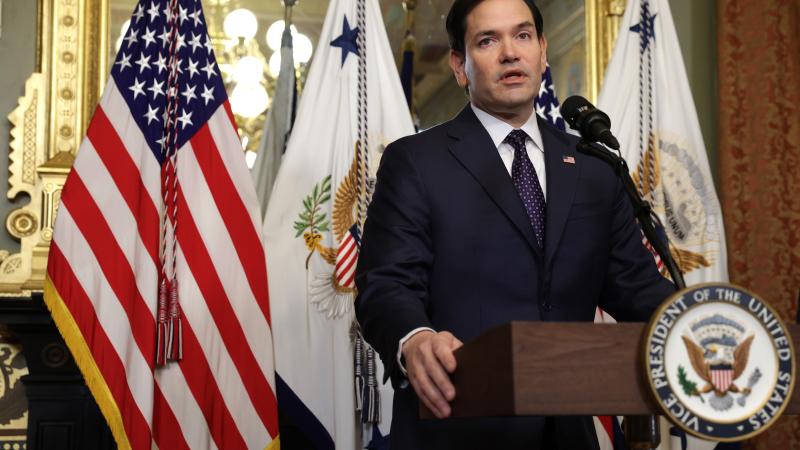Rubio scores win in opening salvo against China as Panama backs out of Beijing’s investment program
Rubio played the role of the good cop, clearly articulating U.S. interests in a Panama Canal free from Chinese domination and promising economic cooperation in return.
Secretary of State Marco Rubio scored a win in the Trump administration’s opening salvo against China by convincing Panama to back out of China’s signature investment program, and in the process, developing a playbook to combat China’s broader influence in the region and around the globe.
Rubio’s trip was preceded by stark demands from President Donald Trump who, playing the bad cop, has insisted that the United States would be forced to move to exert control over the Panama Canal if Chinese influence around the valuable waterway is not curtailed.
Rubio played the role of the good cop, clearly articulating U.S. interests in a Panama Canal—vital for the economy and American military power—free from Chinese domination and promising economic cooperation in return.
The good cop, bad cop model appeared to achieve significant success by the end of Rubio’s visit when President José Raúl Molina announced that his country would not renew its cooperation with the People’s Republic of China’s signature infrastructure investment program, the "Belt and Road Initiative."
That program, long a focus of lawmakers and foreign policy hawks, is one of the key vehicles used by China to expand its economic power and diplomatic influence across the globe, even to places traditionally considered part of the United States’ sphere of influence.
But, Rubio’s success with Panama is only the first step. China has embedded itself deeply in Latin America, leveraging collaboration with anti-American states like Venezuela and Cuba and its increasing trade, infrastructure and resource investment across the region.
In recent decades, China has expanded its influence in Latin America, becoming the region’s top trade partner and investing directly in infrastructure, energy and mineral projects in the hemisphere. More than 20 countries in the Latin American region have signed on to China’s signature infrastructure investment program, the Belt and Road Initiative, which began in 2013 and promises Chinese investments for roads, airports, ports and energy projects.
In some ways, Panama—the small Latin American country that gained its independence from Colombia in 1903 with the help of the United States—was at the tip of the spear for China’s entree into the region. China’s influence in the country has steadily grown since 2017, when Panama cut ties with Taiwan and formally recognized the Chinese government in Beijing. By the following year, Panama became the first Latin American country to sign on to the Belt and Road Initiative.
One former CIA operations officer previously told Just the News that China’s growing influence in Panama in particular represents a national security threat precisely because the canal is so important to the United States.
“The issue there is that for the last few years, the Chinese government has made some effective investments with the Panamanian government, has taken more and more gradual control over the canal that poses a significant national security risk to the United States,” Rick de la Torre told the "Just the News, No Noise" TV show last month.
That “control” that Rubio also warned about includes port facilities on either side of the canal owned by China and Hong Kong-based companies. A consortium of Chinese companies was also awarded a contract in 2018 to construct a bridge over the canal. Other Chinese companies have also invested in energy and water management facilities in the country.
In his meeting with Panamanian President Molina, Rubio informed the government that the United States views China’s “position of influence and control” over the canal area as both a threat to the independence of the canal and a violation of the treaties Panama signed with the United States. He also warned that if Panama did not take any action to remedy the situation, the United States would be required to act, according to State Department spokeswoman Tammy Bruce.
But, coupled with clear demands about the canal, Rubio promised that the United States wants to partner with Panama to make “both nations safer, stronger, and more prosperous,” presenting an alternative to reliance on China for key infrastructure investments.
He reiterated the administration’s desire for a mutually beneficial relationship in a speech to U.S. Embassy staff in Panama City.
“We’ve learned over time the more prosperous, the safer other countries are, the safer and more prosperous it makes us. This is a great example,” Rubio told assembled staff, referring to Panama.
“You referenced the ups and downs of the relationship. In a country that was born in many ways here as a result of the interests of the United States, but over time the relationship had its ups and downs, and today it’s one of our strongest economic partners certainly in the hemisphere and an important catalyst for so much trade and commerce that happens in the United States that affects and impacts so many people both going out and coming in,” he said.
In addition to infrastructure investments, China has also signed comprehensive strategic partnerships with Argentina, Brazil, Chile, Ecuador, Mexico, Peru and Venezuela. It has also sought to expand military cooperation in the region, primarily through arms sales, including to Venezuela, which is currently sanctioned by the United States. Other countries, like Argentina, Bolivia, Ecuador and Peru have also purchased equipment from China, including aircraft and small arms.
Last year, China celebrated the opening of a new commercial port in Peru and the Cuban government has hosted the Chinese navy for port visits, just 90 miles south of Florida.
“They’re on the 20-yard line to our homeland,” former commander of the U.S. Southern Command Gen. Laura Richardson said in a 2023 interview at the Center for Strategic and International Studies.
"alternative methods, alternative companies, alternative options."
The commander, who oversaw the Latin American region for the U.S. military, warned that the infrastructure investments are tempting for Latin American political leaders who see them as an opportunity for growth and prosperity, but similarly to Secretary Rubio, believes the U.S. has to provide alternatives.
“[We] have to be able to have alternative methods, alternative companies, alternative options for them to be able to select to the Chinese competitors. And that’s where we’re getting out-competed by the Chinese right now,” she said.
On Rubio’s second stop of his Latin American tour, the secretary demonstrated the Trump administration’s willingness to provide alternatives to Chinese investment to the Belt and Road Initiative throughout Latin America.
During his visit to El Salvador, Rubio signed a Memorandum of Understanding for Strategic Civil Nuclear Cooperation with the country and in his remarks emphasized the United States’ willingness to “prepare this country and its people for the 21st century” and help El Salvadorans live in “prosperity.”
The Facts Inside Our Reporter's Notebook
Links
- Belt and Road Initiative
- expanded its influence
- steadily grown since 2017
- told the "Just the News, No Noise" TV show
- port facilities
- threat to the independence of the canal
- both nations safer, stronger, and more prosperous
- signed comprehensive strategic partnerships
- celebrated the opening of a new commercial port
- said in a 2023 interview
- in his remarks

